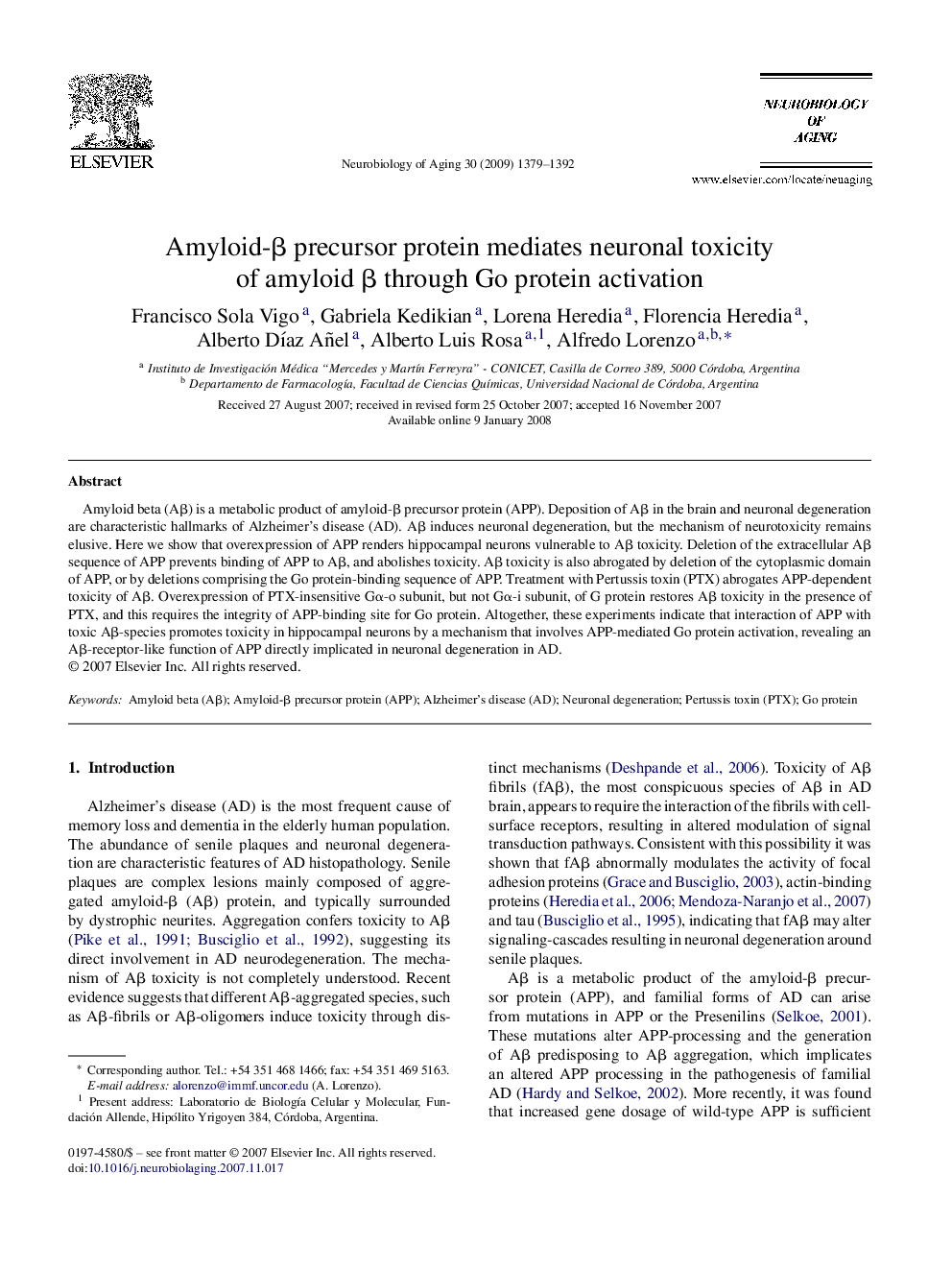| Article ID | Journal | Published Year | Pages | File Type |
|---|---|---|---|---|
| 330234 | Neurobiology of Aging | 2009 | 14 Pages |
Amyloid beta (Aβ) is a metabolic product of amyloid-β precursor protein (APP). Deposition of Aβ in the brain and neuronal degeneration are characteristic hallmarks of Alzheimer's disease (AD). Aβ induces neuronal degeneration, but the mechanism of neurotoxicity remains elusive. Here we show that overexpression of APP renders hippocampal neurons vulnerable to Aβ toxicity. Deletion of the extracellular Aβ sequence of APP prevents binding of APP to Aβ, and abolishes toxicity. Aβ toxicity is also abrogated by deletion of the cytoplasmic domain of APP, or by deletions comprising the Go protein-binding sequence of APP. Treatment with Pertussis toxin (PTX) abrogates APP-dependent toxicity of Aβ. Overexpression of PTX-insensitive Gα-o subunit, but not Gα-i subunit, of G protein restores Aβ toxicity in the presence of PTX, and this requires the integrity of APP-binding site for Go protein. Altogether, these experiments indicate that interaction of APP with toxic Aβ-species promotes toxicity in hippocampal neurons by a mechanism that involves APP-mediated Go protein activation, revealing an Aβ-receptor-like function of APP directly implicated in neuronal degeneration in AD.
